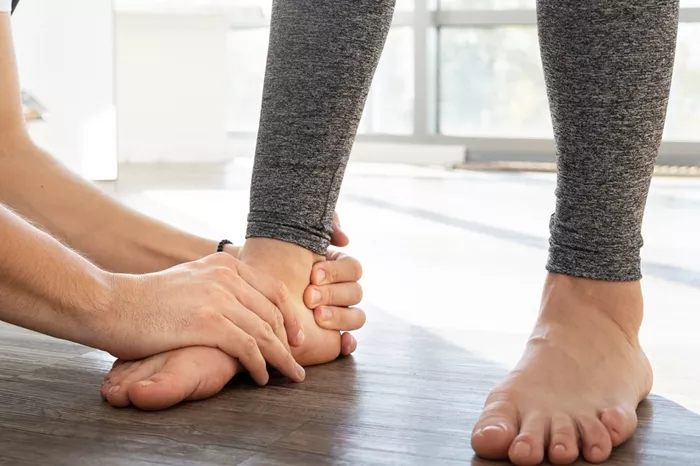Foot pain is often overlooked, but for many women, it silently disrupts daily life and impacts overall health. Dr. Garima Gupta, Senior Consultant at Nivaan Care, explains how chronic foot pain can influence posture, pelvic health, and hormonal balance, urging women to pay attention to their feet as a key to well-being.
Why Foot Pain Matters Beyond the Feet
Women frequently dismiss foot pain as normal, yet it can signal deeper issues. Hormonal changes during menstruation, pregnancy, and menopause cause ligament laxity, affecting foot arches and posture.
Long hours standing—common in household work—combined with unsuitable footwear or walking barefoot on hard floors, add stress to the feet, influencing spinal alignment and mobility. Additionally, conditions like PCOS cause systemic inflammation and insulin resistance, worsening foot discomfort and tissue recovery.
Common Causes and Practical Solutions
1. Hormonal Fluctuations
Hormones like relaxin soften ligaments, leading to flat feet or plantar fasciitis and altered gait.
Suggestions: Use arch-supportive footwear or custom orthotics during hormonal shifts. Practice yoga poses like Tadasana and single-leg stands to strengthen foot muscles.
2. Prolonged Standing and Footwear Habits
Standing long hours on hard surfaces with narrow or ill-fitting shoes strains feet and posture.
Suggestions: Take regular foot breaks with textured rollers, use silicone heel cups, and try daily barefoot walking on grass for biomechanical recalibration.
3. Polycystic Ovary Syndrome (PCOS)
PCOS-related inflammation causes foot pain and stiffness, increasing risks of plantar fasciitis and tendon issues.
Suggestions: Follow an anti-inflammatory diet, consider magnesium supplements, and engage in low-impact exercises like aqua therapy to reduce joint load and improve insulin sensitivity.
Consequences of Ignoring Foot Pain
Poor Posture: Foot pain can cause shoulders to slump, shorten step length, and lower head position, affecting self-image and confidence. Poor posture also raises cortisol levels, impacting mood and hormones.
Tips: Pilates, posture-alignment therapy, and quick posture resets (e.g., wall angels, neck stretches) can improve body language and mental well-being.
Pelvic Floor Dysfunction: Altered gait from foot pain leads to dysfunctional muscle engagement, causing pelvic floor tightness or weakness.
Tips: Consult a physiotherapist for foot and pelvic alignment assessment. Practice diaphragmatic breathing combined with foot-to-core exercises like toe scrunching to restore pelvic floor function.
Related topics:
- How PCOS Affects Weight — And 5 Doctor-Approved Ways to Take Control
- What’s the Best Meds for Pcos?
- The 8 Best Supplements For Women With PCOS


